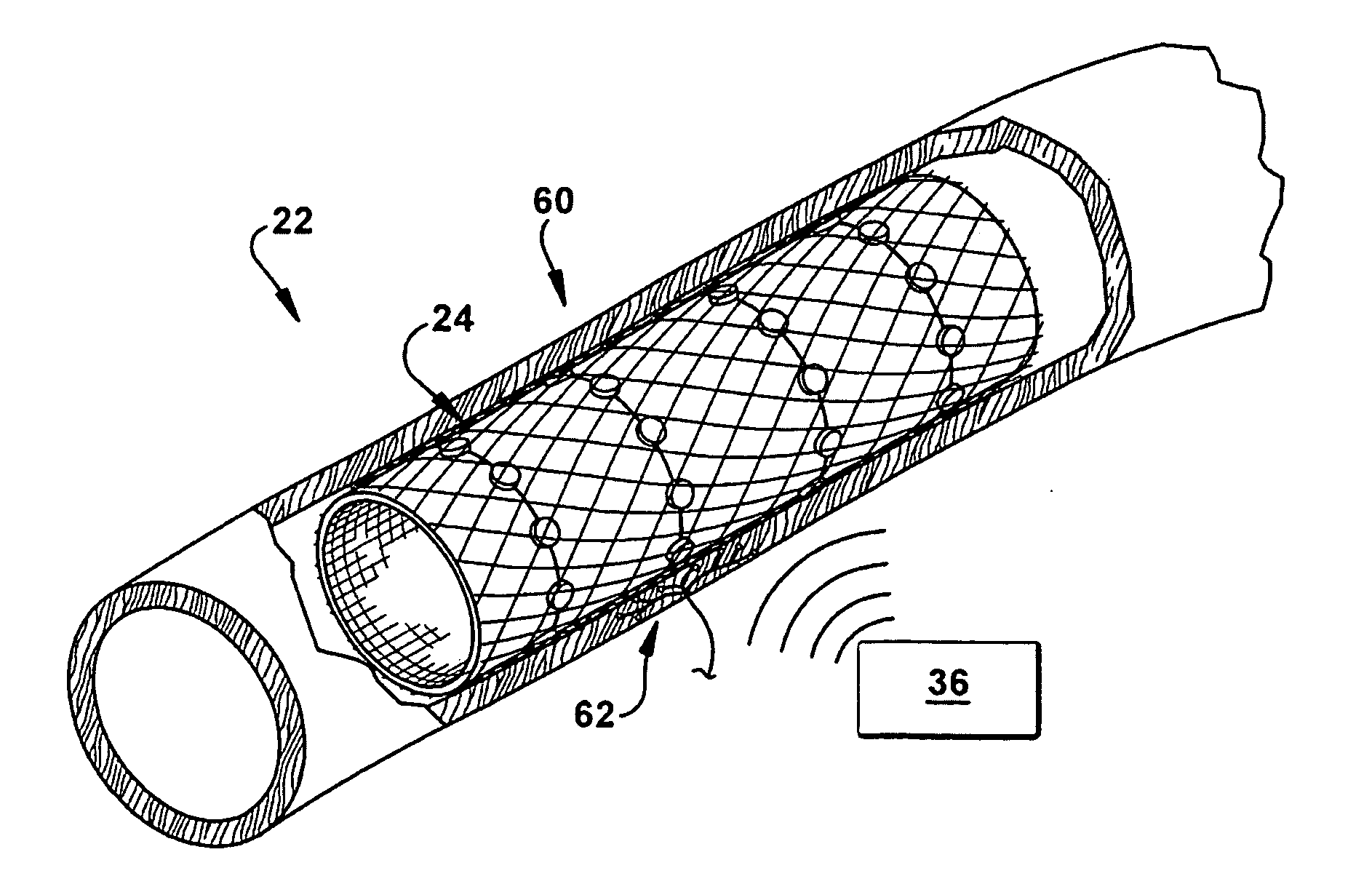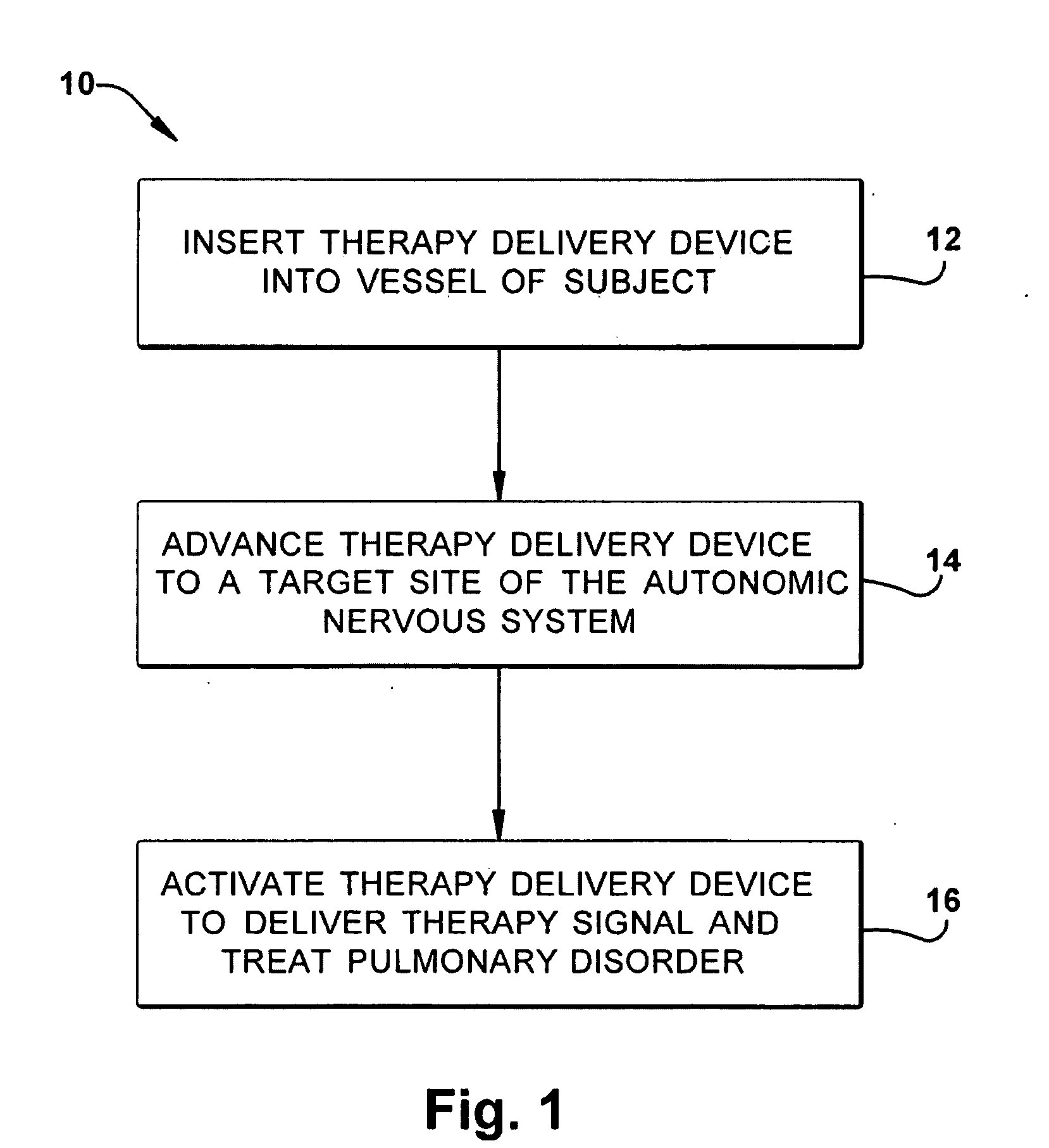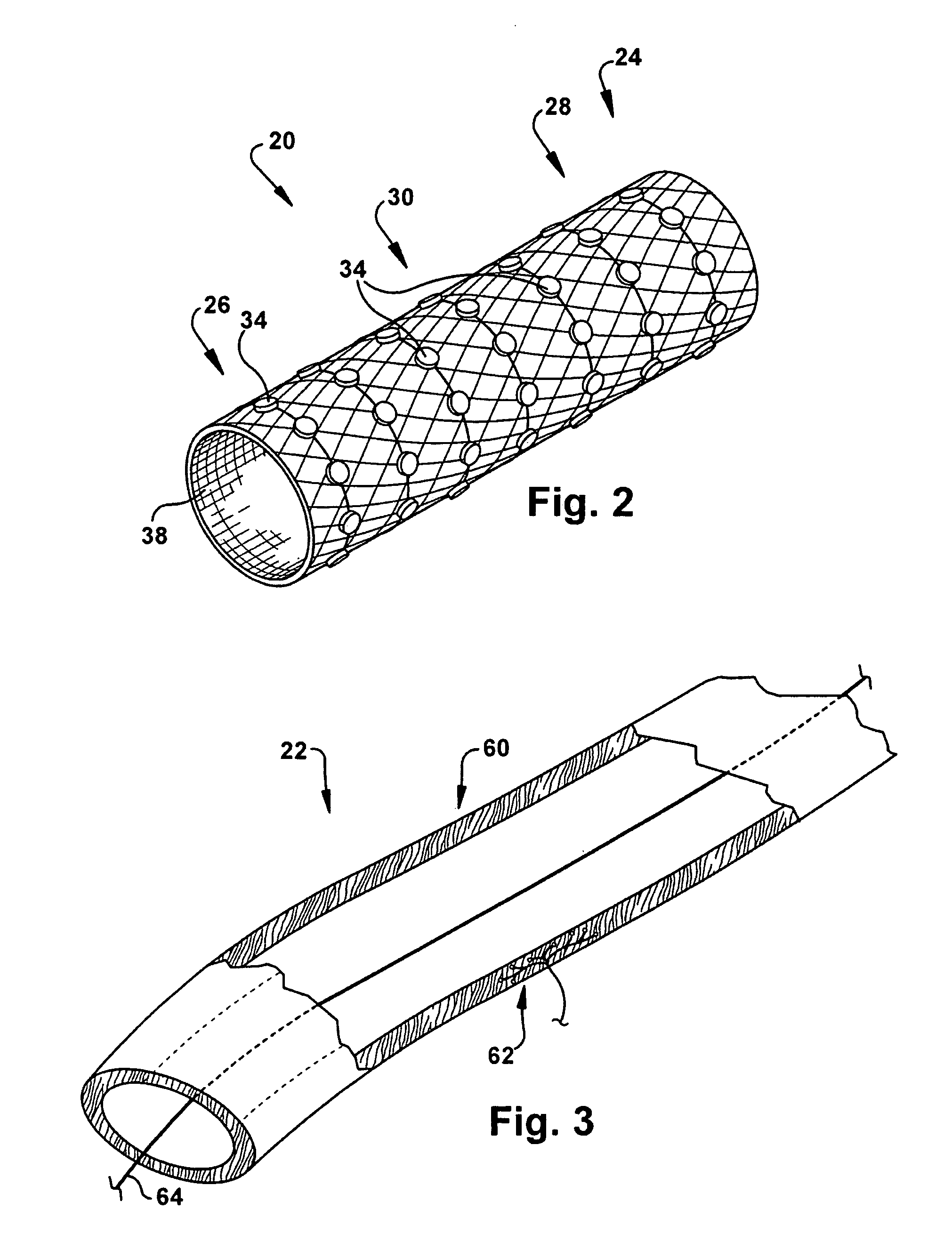Neuromodulatory methods for treating pulmonary disorders
a neuromodulatory and pulmonary technology, applied in the field of neuromodulatory methods, can solve the problems of high invasiveness of electrophysiological methods, only short-term symptomatic relief, and the effect of high invasiveness
- Summary
- Abstract
- Description
- Claims
- Application Information
AI Technical Summary
Benefits of technology
Problems solved by technology
Method used
Image
Examples
Embodiment Construction
[0021]The present invention relates generally to neuromodulatory methods, and more particularly to transvascular neuromodulatory methods for treating pulmonary disorders. As representative of the present invention, FIG. 1 illustrates a method for treating a pulmonary disorder in a subject. Unless otherwise defined, all technical terms used herein have the same meaning as commonly understood by one of ordinary skill in the art to which the present invention pertains.
[0022]In the context of the present invention, the term “nervous tissue” refers to any tissues of the autonomic nervous system (ANS) including, but not limited to, neurons, axons, fibers, tracts, nerves, plexus, afferent plexus fibers, efferent plexus fibers, ganglion, pre-ganglionic fibers, post-ganglionic fibers, cervical sympathetic ganglia / ganglion, thoracic sympathetic ganglia / ganglion, afferents, efferents, and combinations thereof.
[0023]As used herein, the terms “modulate” or “modulating” refer to causing a change ...
PUM
 Login to View More
Login to View More Abstract
Description
Claims
Application Information
 Login to View More
Login to View More - R&D
- Intellectual Property
- Life Sciences
- Materials
- Tech Scout
- Unparalleled Data Quality
- Higher Quality Content
- 60% Fewer Hallucinations
Browse by: Latest US Patents, China's latest patents, Technical Efficacy Thesaurus, Application Domain, Technology Topic, Popular Technical Reports.
© 2025 PatSnap. All rights reserved.Legal|Privacy policy|Modern Slavery Act Transparency Statement|Sitemap|About US| Contact US: help@patsnap.com



